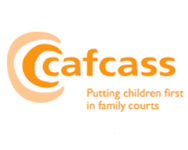
Family lawyers and guardians have hit out at plans to extend temporary measures to manage soaring care applications to Cafcass.
Sir Mark Potter, chair of the family courts division, has written to organisations, including Cafcass, the Magistrates Association and the Association of Lawyers for Children, to inform them that interim guidance on the issue was likely to be extended for another six months. Parties were asked for feedback and have until today to respond.
The guidance, issued in July 2009, permitted Cafcass to allocate cases to teams of duty guardians, rather than to one named practitioner. Potter said at the time that the changes would “not be in the form of a long-term practice direction”.
Family lawyers and children’s guardians have been widely critical of the duty system. Alison Paddle of guardians body Nagalro called the duty system “very unsatisfactory”.
“The risk for children is that the wrong decisions are being made. There need to be far more resources at the front-line and the government needs to look at the whole issue urgently. If Cafcass is not well-funded enough to manage the continuing high levels of care order referrals, all children will suffer,” Paddle said.
Barbara Hopkin, a family lawyer and spokesperson for the Association of Lawyers for Children (ALC), said that the “severe limitations” of the duty system made it “worse than useless”, while Alan Bean, co-chair of the ALC, called it “completely unsatisfactory”.
“Everyone is concerned about what the agenda of the Department for Children, Schools and Families is. People are very unhappy about the guidance being extended,” Bean said.
One family lawyer remarked that the move looked like “a way of getting rid of section 41 via the back door.”
Cafcass chief executive Anthony Douglas said: “The president’s interim guidance last summer has helped us to manage the major increase in workloads. We support the extension of the guidance. It focuses on how we can help all children referred to us, proportionate to the needs in each case. With the resource constraints facing all of us, these are the sorts of measures that will inevitably become mainstream, hence the importance of responding positively.”
A move by the government to amend section 41 of the Children Act 1989 in favour of the duty system was halted last year after an alliance of 20 organisations, including the Association of Lawyers for Children (ALC), Nagalro, the British Association of Social Workers and the children’s commissioner, joined together to resist the changes.
Related Articles
Cafcass supports changes to named guardian law


 Family help: one local authority’s experience of the model
Family help: one local authority’s experience of the model  ‘I spent the first three months listening’: how supportive leadership can transform children’s services
‘I spent the first three months listening’: how supportive leadership can transform children’s services  How senior leaders in one authority maintain a culture of excellence
How senior leaders in one authority maintain a culture of excellence  How staff support ensures fantastic outcomes for children and families
How staff support ensures fantastic outcomes for children and families  Workforce Insights – showcasing a selection of the sector’s top recruiters
Workforce Insights – showcasing a selection of the sector’s top recruiters 

 Facebook
Facebook X
X LinkedIn
LinkedIn Instagram
Instagram
Comments are closed.